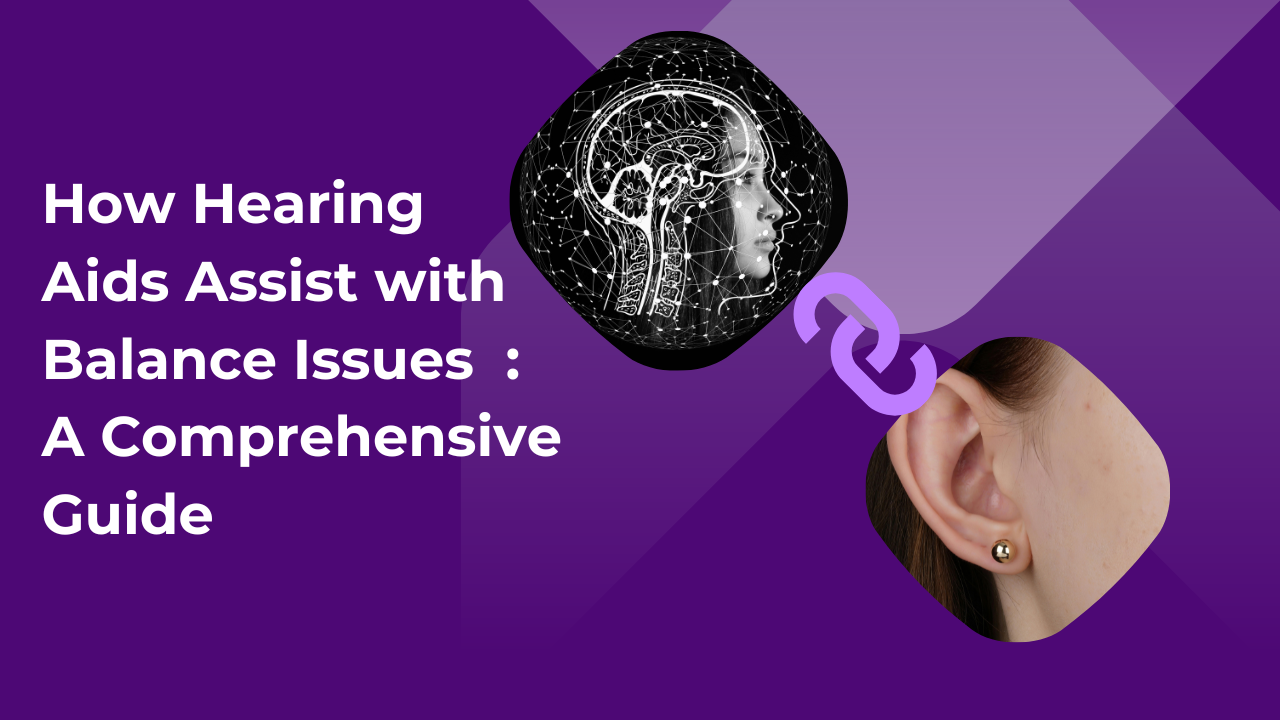Why Are Balance Issues Linked to Hearing Loss?
If you’ve ever felt dizzy or unsteady and have some degree of hearing loss, you’re not imagining things. Hearing and balance are deeply connected through the inner ear. When one is affected, the other often shows symptoms too. People usually ask, “Does hearing loss affect balance Issues ?” The answer is yes, and the connection is both physiological and functional.
This is particularly important for older adults in Mumbai and Navi Mumbai, where balance-related falls are increasingly common. Helping someone hear better may also help them stay steadier on their feet.
What’s the Connection Between Hearing and Balance?
Inside your ear is the vestibular system—an organ responsible for balance and spatial awareness. Right next to it is the cochlea, which handles hearing. When the inner ear is damaged or deteriorates with age, both hearing and balance can suffer.
Imagine trying to walk in the dark on an uneven road with no signals from your ears or eyes. That’s what it’s like when your hearing and balance both decline. Sounds help you orient yourself. Without them, your brain has less input to work with.
How Hearing Aids Help with Balance Issues
Clearer Audio Cues Mean Better Orientation
Hearing aids don’t just make things louder. They help the brain process sound direction and depth more accurately. This input makes it easier to walk steadily in environments like crowded streets or echoing rooms.
Reduced Cognitive Load
Straining to hear takes brainpower. That leaves fewer resources for other tasks like staying balanced. Hearing aids ease that mental effort, helping you multitask better.
Improved Situational Awareness
People with untreated hearing loss often get startled or confused by movement behind them. When hearing is clearer, the brain is more alert to its surroundings, reducing chances of missteps or imbalance.
Clinical Evidence Supporting Hearing Aids for Balance
Research from the Journal of the American Geriatrics Society shows older adults with hearing aids perform better in balance tests than those without. Other studies confirm fewer falls in seniors after hearing aid use.
This correlation is strong enough that audiologists in Mumbai now screen older adults for both hearing and balance together.
Common Signs Your Balance Issues May Be Linked to Hearing
- You feel dizzy in crowded or noisy places
- You lose your balance more often when walking on uneven ground
- You miss alarms, doorbells, or cars approaching
- You rely more on visual cues than before
If two or more apply, it’s worth scheduling an audiometry test in Navi Mumbai or your nearest center.
Who Should Consider Hearing Aids for Balance Improvement?
Best Candidates Include:
- Adults aged 60+ with frequent falls
- People with confirmed mild to moderate hearing loss
- Individuals who feel disoriented in silent environments
- Those who have passed a vestibular (balance) test but still feel unsteady
Hearing Aids and Dual Benefits: Hearing and Stability
Hearing aids—especially Bluetooth-enabled hearing aids and rechargeable hearing aids—now come with advanced sensors that not only clarify sound but help users stay aware of motion around them.
Some premium models even include fall-detection alerts and gyroscopic sensors that detect tilt or instability.
Addressing PAA Questions in Context
Does hearing loss affect balance?
Yes. When inner ear function deteriorates, both hearing and balance suffer. People with untreated hearing loss are at greater risk of falls and imbalance.
Hearing aids help with which of the following problems?
They support clearer hearing, better orientation, lower mental fatigue, and reduced risk of falls. They don’t directly fix inner ear balance disorders but greatly aid functional balance.
What is the importance of customer service in this context?
Good service ensures your hearing aids are fitted correctly, tuned properly, and maintained over time. Without that support, even the best device can fail.
Why is it important to have good customer service?
Because hearing aids need customization. Ongoing support means better sound clarity, longer device life, and real improvement in balance and hearing.
Comparing Devices: What Should You Look For?
| Feature | Benefit for Balance |
| Directional Microphones | Helps locate sound direction |
| Feedback Cancellation | Prevents distraction from sharp noises |
| Motion Sensors | Alerts to movement and instability |
| Rechargeable Batteries | Removes battery anxiety and drop risk |
| Bluetooth Functionality | Allows pairing with safety apps |
If you’re shopping, compare hearing machine price in Mumbai but don’t just go for the cheapest. Functionality should come first.
Tips for Safe Use and Better Stability
- Schedule an audiometry test at a trusted clinic before starting.
- Choose models that allow professional tuning.
- Always wear your hearing aids while walking or outdoors.
- Report any sudden dizziness to your audiologist immediately.
- Keep backup hearing aid batteries if your device isn’t rechargeable.
What Makes a Hearing Clinic Truly Helpful?
- Offers audiometry test in Navi Mumbai with walk-in facility
- Has in-house fitting and tuning professionals
- Offers maintenance and reprogramming
- Carries Bluetooth-enabled hearing aids and rechargeable models
- Explains device benefits in simple terms
Key Takeaways →
→ Hearing loss can contribute to balance problems, especially in older adults.
→ Hearing aids improve orientation, awareness, and reduce cognitive stress.
→ Balance issues improve when hearing improves, even if subtly.
→ Audiometry testing is essential before buying a hearing aid.
→ Choose hearing aids that match both your hearing and mobility needs.
→ Ongoing service and fitting help improve outcomes over time.
How Crystal Hearing Solution Helps
Crystal Hearing Solution offers solutions that go beyond just hearing. Our team:
- Conducts full audiometry and balance screenings
- Recommends best-fit aids for both hearing and orientation
- Provides Bluetooth and rechargeable hearing aids that aid movement
- Serves patients in Mumbai, Navi Mumbai, and Chembur
Visit us to speak to an expert or book your test online.
External Resources
- Hearing Loss Association of America
- American Academy of Audiology
- National Institute on Deafness and Other Communication Disorders
FAQ
1. Do hearing aids really help with balance?
Yes, especially when balance problems are linked to reduced spatial hearing or sound awareness. They’re not a cure-all but can significantly improve coordination.
2. Can young adults benefit from hearing aids for balance?
If hearing loss is present, yes. Many athletes or professionals in high-noise environments benefit from better auditory orientation.
3. How long does it take to adjust to hearing aids?
It typically takes 1–3 weeks to feel normal. However, balance improvements may be noticed sooner if hearing is restored clearly.
4. Do I need a specialist for balance and hearing tests?
Yes. An audiologist trained in vestibular assessments can help. Clinics like Crystal Hearing Solution offer both services.
5. What’s the typical hearing aid machine price in Mumbai?
Prices vary from ₹15,000 to ₹3,00,000 depending on features. Rechargeable and Bluetooth-enabled hearing aids tend to cost more.
6. Should I wear my hearing aid during workouts?
If your model is water-resistant and comfortable, yes. It helps with coordination and awareness during activity.





